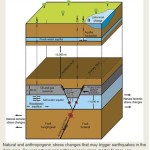An article by Jim Malewitz in The Texas Tribune, “As Oil Prices Plunge, Questions about Big Tax Credit,” sheds light on an arcane and technical issue not well understood even by most oil and gas lawyers – classification of wells as “oil wells” or “gas wells” by the Texas Railroad Commission. While most wells produce both oil and gas, under RRC rules a well must be either one or the other. Different rules apply depending on well classification. Why does it matter?
For one thing, oil and gas leases traditionally have allowed larger pooled units for gas wells than oil wells – allowing operators to hold more acreage with a single well. This distinction is based on the theory that gas wells drain a larger area than oil wells – probably true in most conventional reservoirs, where oil and gas migrate through the formation as wells withdraw production. Not so true for new unconventional shale formations, which have very low permeability and porosity, and where oil and gas don’t “flow” through the formation but are produced through artificially induced fractures.
But operators recently are rushing to “reclassify” wells as gas wells that were originally classified as oil wells. According to Malewitz, the RRC granted operator applications to reclassify 844 wells from oil to gas this year – nearly six times the number reclassified in 2013. And Devon Energy has asked the RRC to reclassify more than 200 of its wells from oil to gas. The reason? Tax credits. Continue reading →
 Oil and Gas Lawyer Blog
Oil and Gas Lawyer Blog


